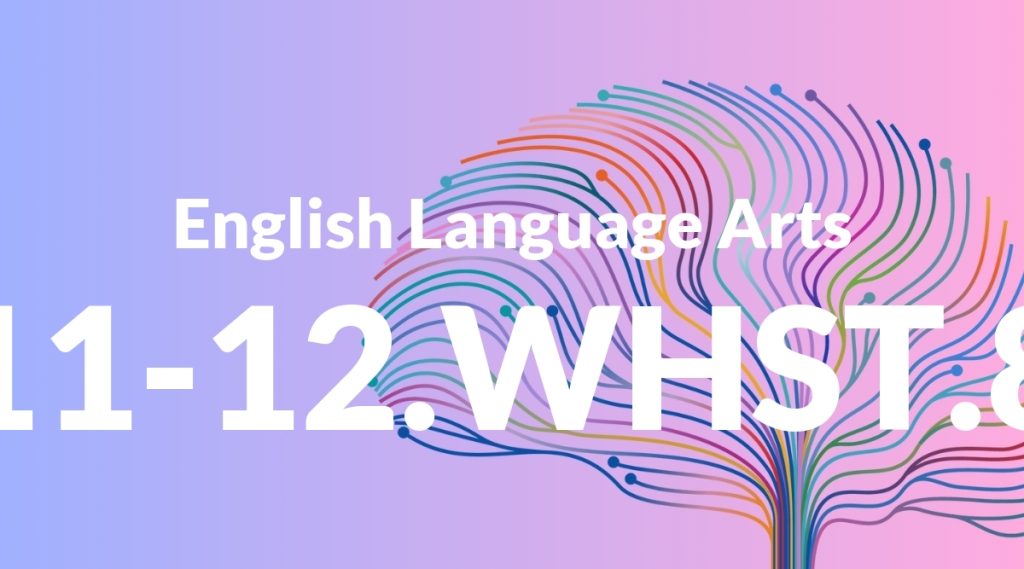Standard: 11-12.WHST.8 – Gather relevant information from multiple authoritative print and digital sources, using advanced searches effectively; assess the strengths and limitations of each source in terms of the specific task, purpose, and audience; integrate information into the text selectively to maintain the flow of ideas, avoiding plagiarism and overreliance on any one source and following a standard format for citation.
Grade level: Grade 11-12
Subject: English Language Arts
Domain: Writing: History, Science & Technical Subjects
Teacher Overview
This standard emphasizes the importance of gathering and integrating information from multiple authoritative sources. It is crucial for students to learn how to conduct advanced searches, assess the credibility of their sources, and avoid plagiarism. Mastery of this skill is essential for their success in higher education and professional settings. Students should be familiar with basic research methods, understand how to identify primary and secondary sources, and have some experience with citation practices.
Students will be equipped to handle complex research tasks, synthesize diverse information, and present well-supported arguments in their writing.
Common Misconception 1
A common misconception is that one source is enough for thorough research. This is incorrect because relying on a single source can lead to a narrow or biased perspective.
Intervention 1
Introduce activities that require students to compare information from multiple sources, highlighting how different perspectives contribute to a more nuanced understanding.
Common Misconception 2
Another misconception is that all online information is reliable. This is false as the internet contains a mix of credible and non-credible sources.
Intervention 2
Provide lessons on evaluating the credibility of online sources, including checking the author’s credentials, the publication date, and the site’s domain.
Prerequisite Knowledge
Students should already understand basic research skills, including how to perform simple searches, differentiate between primary and secondary sources, and have a foundational grasp of citation formats.
Subsequent Knowledge
After mastering this standard, students will be able to conduct in-depth research projects, synthesize information from various sources, and present their findings in a coherent and well-cited manner.
Instructional Activities
- Conduct a research project on a historical event using at least three different sources.
- Create a scientific literature review on a chosen topic, evaluating the strengths and limitations of each source.
- Write a technical report that integrates information from various digital sources, ensuring proper citation.




